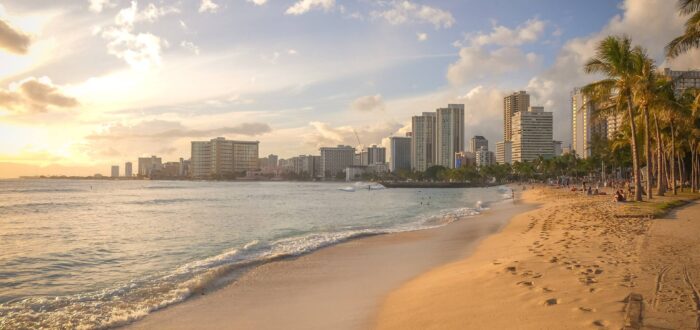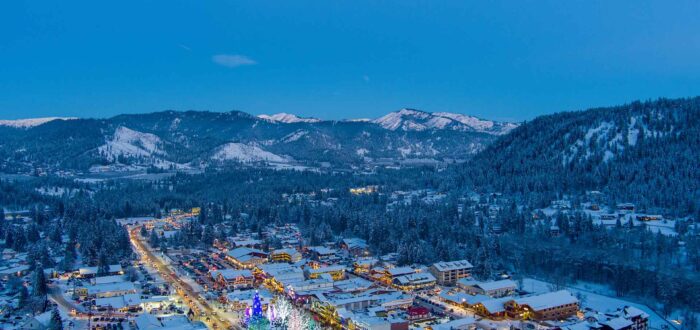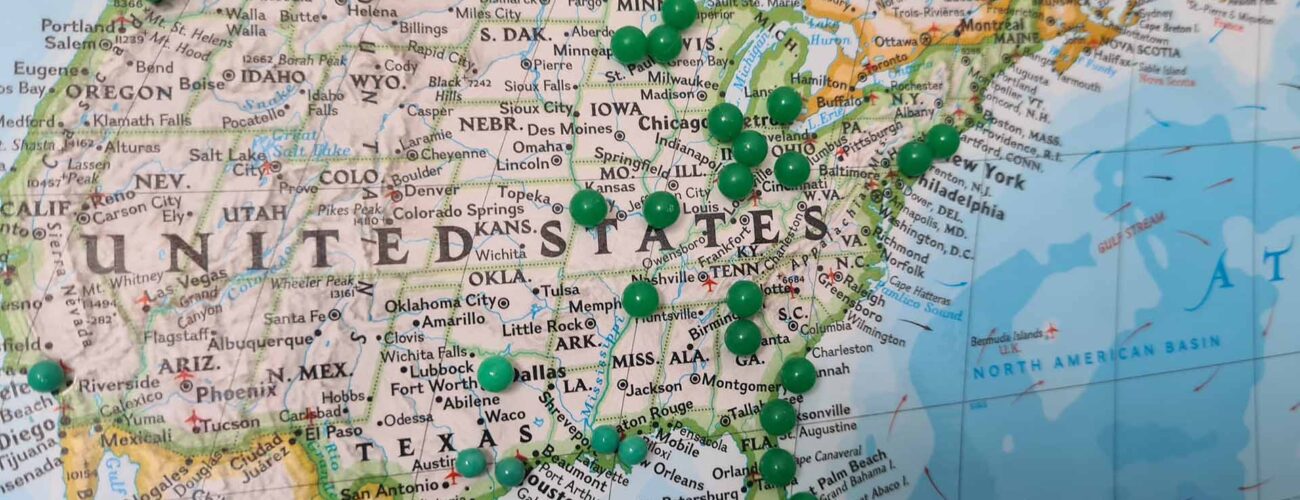

Where Should I Move in the US – Here are 5 Underrated Cities to Call Home
Posted in City Guides on August 16, 2023
Are you asking yourself, “Where should I move in the US?” While popular cities often grab the limelight, many underrated locales promise a blend of culture, work opportunities, affordable cost of living, and housing. Dive into these lesser-known cities that could be your next perfect home.
The top five underrated cities in the US to consider when moving across the country are Buffalo, Richmond, El Paso, Pittsburgh, and Milwaukee. The main benefits of these locations are great employment opportunities, educational institutions, scenery, rich history, and culture.
What are The Benefits of Living in Underrated Cities?
Living in lesser-known locations comes with relocation benefits often overlooked in the hustle and bustle of mainstream metropolitan life. Here are some of them:
- Affordability – underrated cities often have a lower cost of living. Whether it’s housing, utilities, or general expenses, your money can often stretch further,
- Less crowded – reduced population density can lead to less traffic, shorter lines, and overall less stress,
- Unique culture – these locations often have distinct cultures, traditions, and events that aren’t as commercialized,
- Tighter-knit communities – living in a smaller place often means more opportunities to build close relationships and engage in community events.
- Natural beauty – these cities can often be closer to untouched natural landscapes, offering a peaceful environment and recreational opportunities,
- Opportunities for growth – with less competition than in bigger cities, there can be more chances to make your mark,
- Economic development – many underrated locations are on the cusp of economic booms. Also, moving to these cities might get you new job opportunities and entrepreneurial possibilities.
Choosing where to live and opting for an underrated city doesn’t mean compromising the quality of life. It can enhance it in ways one hadn’t even considered.
Where Should I Move in the US – Factors to Consider Before the Relocation
Relocating, no matter our reasons for it, is a significant decision that influences numerous facets of one’s life. Before deciding where to move to in the US, it’s imperative to consider various factors. Ignoring them could lead to unforeseen relocation mistakes, challenges, and regrets.
Employment Opportunities and Local Economy
A robust local economy often signifies a thriving market, diversified industries, and ample job opportunities, attracting talent and fostering innovation. It indicates regional stability, ensuring residents can find varied employment, career growth, and financial security.
Educational Institutions
The presence and quality of educational institutions in a region reflect its commitment to enlightenment, progress, and the holistic development of its residents. For families relocating with kids, proximity to reputable schools and universities is a factor in relocation decisions, ensuring their children have access to quality education and opportunities.
Climate and Geography
A location’s climate dictates weather patterns and potential risks, like hurricanes, droughts, or snowstorms. Meanwhile, its geography, be it mountainous terrains, coastal areas, or vast plains, determines its recreational activities, local fauna and flora, and even economic pursuits.
Proximity to Family and Friends
Relocating for love or to be closer to loved ones not only provides emotional support and comfort but also establishes a safety net during challenging times. Such proximity often translates to tangible support, like child care assistance, shared responsibilities, or just the ease of spontaneous get-togethers.

#1 Buffalo, NY – The Gem That Beckons with Culture, Cuisine, and Captivating History
Buffalo, situated in Western New York on the eastern shores of Lake Erie, boasts a rich tapestry of history and cultural influence. While the latter half of the 20th century saw economic challenges and population decline, Buffalo’s resilient spirit has driven its recent renaissance. Embracing its storied past, the city today is experiencing a revitalization in various sectors, celebrating its unique heritage while looking forward to a promising future.
The Cost of Living In Buffalo
It traditionally boasts the cost of living below the national average, making it an attractive option for many individuals and families seeking an affordable urban setting. As with any city, the specific expenses can fluctuate based on various factors. Here are some general insights:
| Expense | Price |
|---|---|
| Basic Utilities | $230 |
| Monthly Pass Transportation | $75 |
| Apartment (1 bedroom) Outside of Centre | $1,160 |
| Price per Square Feet to Buy an Apartment Outside of the Centre | $700 |
Buffalo’s Diverse Economy Boasts Job Opportunities
With an average monthly net salary of around $4,000, Buffalo has been making concerted efforts to diversify its economy and revitalize its job market. The healthcare sector has emerged as a dominant force.
Education, driven by establishments like the University at Buffalo and Buffalo State College, also provides numerous employment opportunities. Moreover, the city has been pushing forward in the tech sector, with startups and IT companies gradually making their mark.
Home of Wonderful Architecture and Fabulous Attractions and Activities
One of the city’s architectural marvels is the Darwin D. Martin House, designed by the renowned Frank Lloyd Wright, standing as a testament to innovative design. Buffalo’s waterfront bustles with recreational activities, concerts, and events. Nature lovers aren’t left behind, as the majestic Niagara Falls is just a short drive away. Lastly, talking about Buffalo is incomplete without indulging in its culinary scene, especially its famed Buffalo wings.
Check the video below for the top 20 things you can do in Buffalo.
#2 Richmond, VA – Southern Charm Meets Urban Renewal in a Tapestry of History and Innovation
Founded in 1737 on the James River, Richmond became a key economic center due to its strategic location. Beyond its revolutionary past, it evolved into a vibrant industrial city in the 19th and early 20th centuries. Today, it beautifully marries its historical roots with modernity, offering a dynamic blend of arts, culture, and innovation.
The Cost of Living in Richmond
Richmond offers residents a balanced blend of urban amenities with a cost of living that is relatively reasonable when compared to several other major US locations.
| Expenses | Price |
|---|---|
| Basic Utilities | $150 |
| Monthly Pass Transportation | $60 |
| Apartment (1 bedroom) Outside of Centre | $1,340 |
| Price per Square Feet to Buy an Apartment Outside of the Centre | $180 |
The Finance and Legal Industry Offers Many Job Opportunities
Its strategic location has also made it attractive for logistics and supply chain operations, with an average monthly net salary slightly above $5,000. The finance industry has a significant presence, with numerous banks and insurance companies headquartered or maintaining significant operations there. Additionally, the city is a hub for legal, governmental, and non-profit organizations, given its capital status.
It Offers Historic Key Attractions and Activities
History buffs will be captivated by the city’s rich past, showcased at sites like the Virginia State Capitol and the American Civil War Museum. The James River, a natural gem, provides a backdrop for numerous outdoor activities and housing festivals. For art enthusiasts, the Virginia Museum of Fine Arts houses an impressive collection spanning diverse cultures and eras. In contrast, the burgeoning arts district of Broad Street offers galleries, theaters, and live performances.
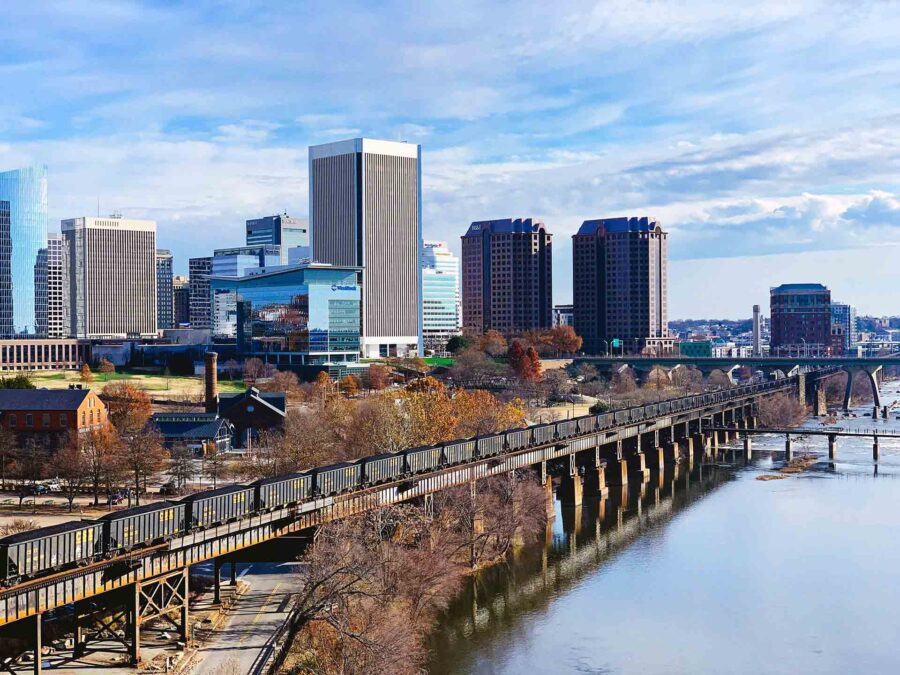
#3 El Paso, TX – Borderland Beauty, Vibrant Cultures, and Sweeping Desert Landscapes
El Paso, situated at Texas’s western edge, boasts a rich tapestry of cultures and histories shaped by its strategic location along the Rio Grande. The city seamlessly melds American and Mexican influences. Today, against the Franklin Mountains’ backdrop, the city stands as a vibrant testament to resilience, cultural exchange, and the enduring spirit of borderland communities.
The Cost of Living in El Paso
With an average monthly net salary of just around $4,500 and housing costs that are particularly notable, El Paso is the place to be.
| Expenses | Price |
|---|---|
| Basic Utilities | $140 |
| Monthly Pass Transportation | $42 |
| Apartment (1 bedroom) Outside of Centre | $720 |
| Price per Square Feet to Buy an Apartment Outside of the Centre | $125 |
History to Festivals, Discover the Heartbeat of the Southwest
El Paso is the place where the sun shines 302 days a year on average, making it ideal for outdoor enthusiasts. One of its standout attractions is the Franklin Mountains State Park, offering numerous hiking and biking trails that provide panoramic views of the region. The city’s downtown, characterized by its historic Plaza Theatre, is not only an architectural gem but also hosts a myriad of performances. El Paso Zoo, spanning 35 acres, engages families with its animal exhibits.
Where Career Ambitions Meet Vibrant Job Opportunities
The city’s strategic location on the US-Mexico border has made it a key player in international trade, logistics, and manufacturing, especially in the maquiladora industry. Military installations also played a significant role in employment and the growing healthcare sector.
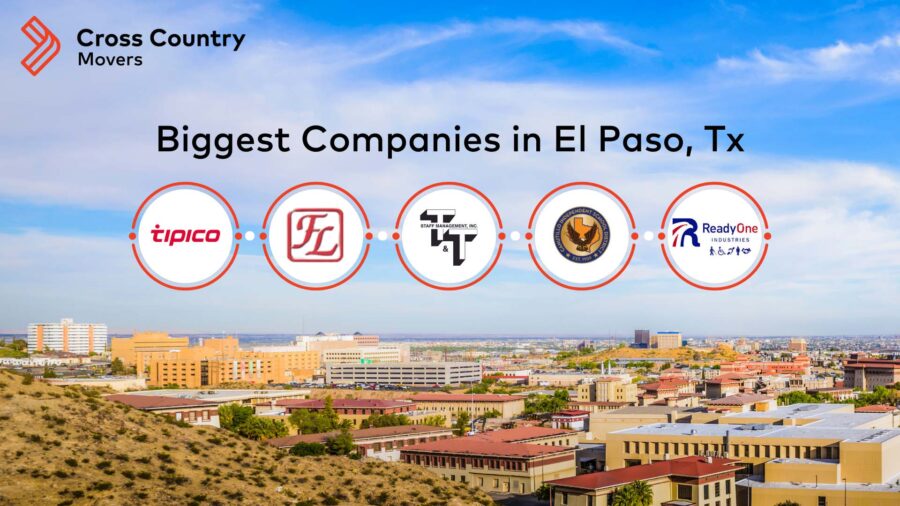
#4 Pittsburgh, PA – Hub of Innovation and Cultural Fusion
The location, commonly called the “Steel City,” has a storied history rooted in industrial might and innovation. Nestled at the confluence of the Allegheny, Monongahela, and Ohio Rivers, Pittsburgh’s geographical advantage made it a critical hub. That’s why Pittsburgh emerged as a healthcare, education, and technology center.
The city’s resilience and adaptability are emblematic of its rich history, blending a blue-collar legacy with modern innovation. Throughout its transformation, it has retained its distinct cultural identity, marked by its passionate sports fandom, rich arts scene, and iconic architecture, all set against the backdrop of its iconic three rivers.
The Cost of Living in Pittsburgh
Housing costs typically remained below the national average. And an average monthly net salary of just below $4,500 makes it an appealing destination for young professionals and families.
| Expenses | Price |
|---|---|
| Basic Utilities | $195 |
| Monthly Pass Transportation | $100 |
| Apartment (1 bedroom) Outside of Centre | $1,100 |
| Price per Square Feet to Buy an Apartment Outside of the Centre | $810 |
From Steel Strongholds to Tech Titans
Leading the charge in tech and innovation are companies. Many local startups can provide you with work:
Besides startups, there are many companies in the healthcare sector, as well as banking and financing.
Dive Into Riverfront Revelries, Cultural Conclaves, and the Legacy of Steel
Dominating its skyline is the iconic Point State Park, where the three rivers converge, a scenic spot that hosts various festivals and events. Sports fans can feel the city’s pulse at the iconic Heinz Field or PNC Park, home to the city’s beloved Steelers and Pirates, respectively.
Check the video that follows for some ideas on what to do when in Pittsburgh.
#5 Milwaukee, WI – Blend of Lakeside Beauty, Cultural Richness, and Midwestern Charm
The immigrant groups greatly influenced Milwaukee’s cultural and social fabric, leading to the establishment of breweries, churches, and neighborhoods still central to the city’s identity.
The brewing industry, in particular, earned Milwaukee the moniker “Brew City.” Companies like Pabst, Schlitz, and Miller became household names and cemented the city’s reputation as the beer capital of the world. In addition to brewing, Milwaukee developed as an industrial powerhouse focusing on machinery, tanning, and the manufacturing of heavy equipment, thanks to companies like Harley-Davidson.
The Cost of Living in Milwaukee
With an average monthly net salary slightly above $4,900 and affordable housing, this is a highly sought place for professionals and families alike.
| Expenses | Price |
|---|---|
| Basic Utilities | $220 |
| Monthly Pass Transportation | $75 |
| Apartment (1 bedroom) Outside of Centre | $1,040 |
| Price per Square Feet to Buy an Apartment Outside of the Centre | $420 |
A Beacon for Job Seekers in the Midwest
While manufacturing remains a significant sector, especially with companies like Harley-Davidson headquartered in the city, other industries have risen to prominence. Healthcare has become a dominant field, as well as education.
The financial sector is bolstered by firms like Northwestern Mutual, which has its roots firmly planted in the city. Milwaukee’s location along Lake Michigan also supports logistics, trade, and tourism-related jobs.
Sip on Craft Brews, Sail Lake Michigan, and Soak in the Vibrancy of the Its Hidden Gem
For those keen on exploring Milwaukee’s brewing legacy, the historic Pabst Mansion and brewery tours, like the Miller Brewery Tour, are a must-visit. The Milwaukee Public Market in the Historic Third Ward offers a taste of local flavors and artisanal crafts.
Families flock to the Milwaukee County Zoo, while the Harley-Davidson Museum appeals to motorcycle enthusiasts and history buffs alike. The city comes alive in summer with festivals on the lakefront.
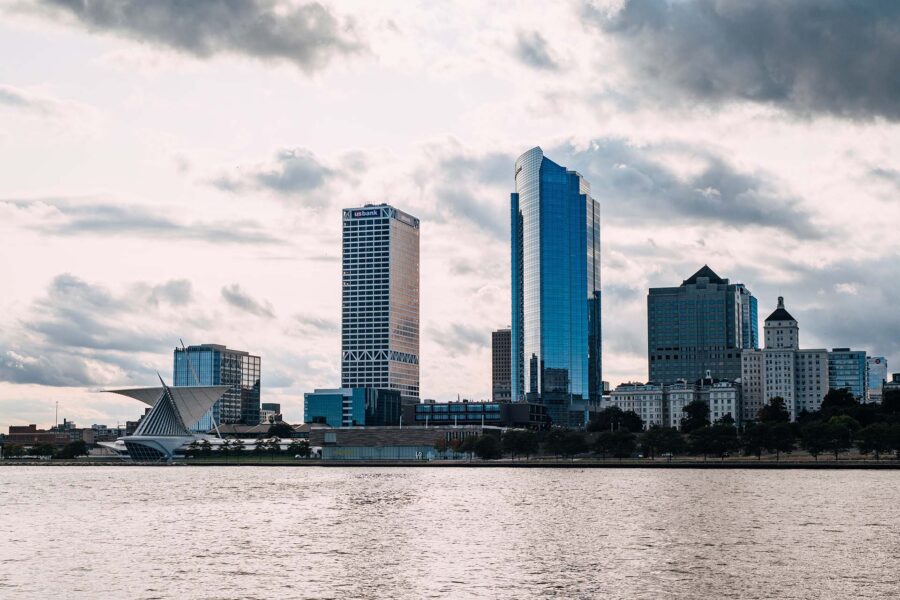
Pick the Best Spot and Hire Cross Country Movers to Aid You in Moving Across the Country
When considering a significant life change like moving cross country, it’s essential to ensure a smooth transition by choosing the right company. Utilizing cross-country moving services can significantly ease the relocation process, and this is where long-distance movers come into play.
Cross Country Movers’ expertise in long-distance moving ensures that every detail, from packing services to safely shipping your belongings to another state, is handled with utmost care and precision. The challenges of relocating are numerous, but with our support, they become a breeze. Contact us today and let our experts provide you with a seamless and stress-free relocation experience.
FAQ
Why Should I Consider Moving to an Underrated City Instead of a Popular One?
These places frequently present a harmonious blend of affordability, minimal congestion, and a distinct local culture. They stand as hidden gems, often becoming ideal destinations for those relocating from the hustle of places like California.
Are Job Opportunities Scarce in Smaller, Underrated Cities?
Not necessarily. Many locations are emerging hubs for various industries. While they may not have the sheer volume of opportunities as bigger cities, they often have specialized industries or sectors where they shine.
Will I Have Access to Good Healthcare and Education in These Underrated Cities?
Many of these locations have excellent healthcare facilities and educational institutions. It’s essential to research each city’s offerings in these areas before deciding.
Are These Cities Suitable for Families?
Absolutely. They often provide a more relaxed pace, spacious living areas, and community-oriented events and activities that are great for families.
I Love Arts and Culture. Will I Find Them in These Cities?
While they may not have the same scale of cultural events as bustling areas, many locations have vibrant arts scenes, local theaters, galleries, festivals, and good neighborhoods that reflect their unique culture.
How Do I Start the Process of Moving to One of These Cities?
Begin by researching potential locations and setting your relocation budget while considering factors like job opportunities, amenities, and cost of living. Next, visit your shortlisted places to get a feel for them before planning your relocation. Once you’ve decided, start the logistical aspects of this process, like house hunting, familiarizing yourself with local resources and communities, and hiring movers for a smooth and safe transition.

